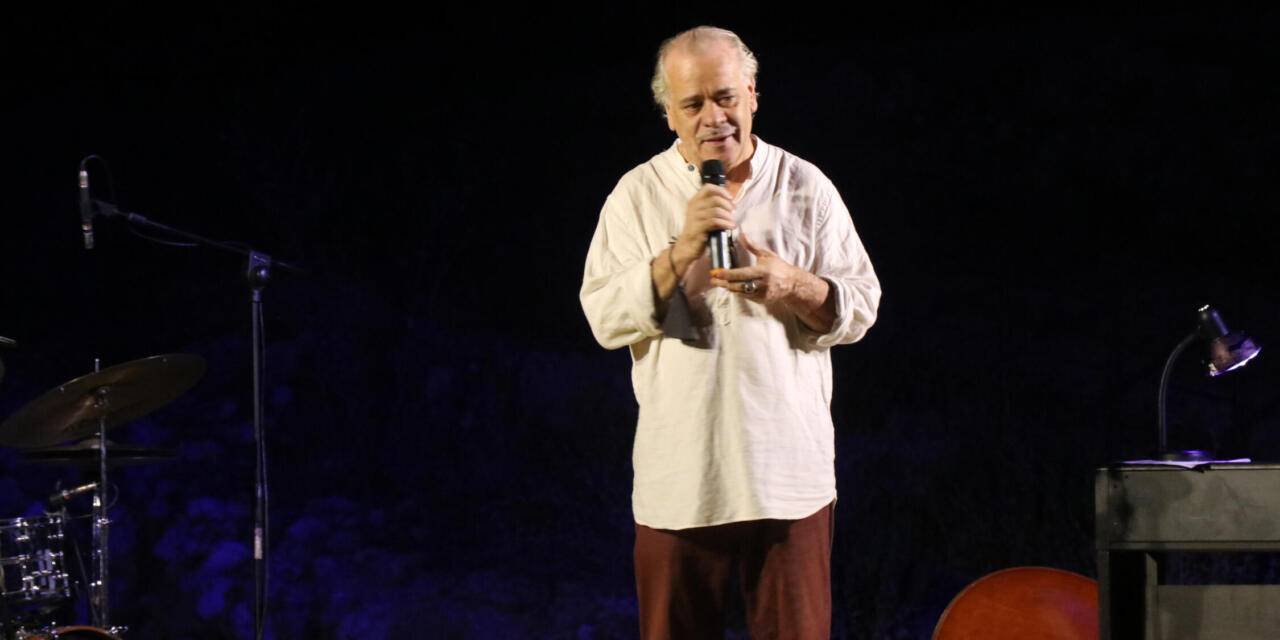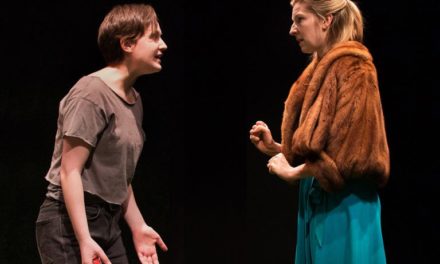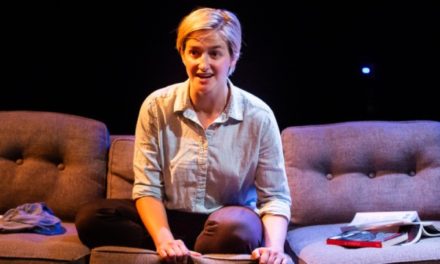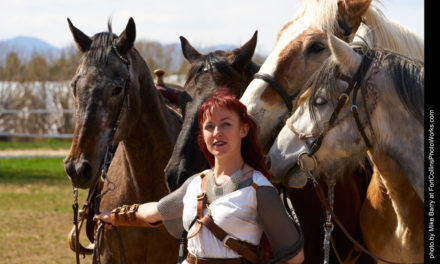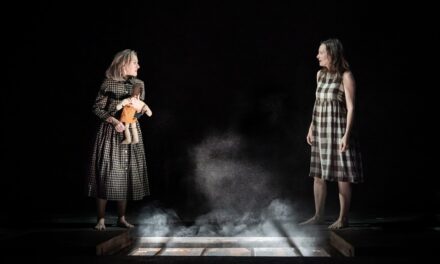Fabio Tolledi is a theatre director, and playwright of Astràgali Teatro, a theatre company founded in 1981, based in Italy. Since 1992, he directs all the performances and training activities of Astràgali Teatro Company. He is President of the Italian Centre of the International Theatre Institute (ITI), Vice-President of ITI for Europe, and Secretary of ITI Theatre in Conflict Zones Committee. He has a Ph.D. in Sociology. He currently conducts research at the University of Salento (Italy) and has collaborated with other European Universities. He has been project director of many international projects, realizing artistic collaborations with international theatres, institutions, universities, artists. His performances have been played all over the world. Tolledi’s work has been focusing on the direction of intercultural theatrical workshops and performances with team of actors and actresses from different countries, realizing joint multilingual and site-specific performances. He staged performances and gave lectures, conferences, workshops in more than 30 countries, also in conflict zones.
Ivanka Apostolova Baskar: Fabio, what does social theater and theater in conflict zones mean?
Fabio Tolledi: Theater has always been a social phenomenon. And conflict has always been an essential part of social dynamics. In recent years, on a global level, theater has been experiencing a process of profound awareness about these “social” aspects and about the “conflict”, which – unfortunately – invests the planet on a global dimension. The conflict zones are present in the whole world from the metropolis (think of the French banlieues or the revolts in the ghettos in the United States) to the areas subject to the processes of neocolonialism up to the redefinition of the spheres of geo-political influence with respect to the borders defined by the cold war. On the other hand, social theater invests those aspects that concern new subjectivities and new areas that go beyond the scope of the theater conventional spaces and beyond representation: suburbs, prisons, mental illness, diversability.
Ivanka Apostolova Baskar: What is the difference between political theater today, versus social theater, now?
Fabio Tolledi: The Theater of Aeschylus like that of Aristophanes, the Theater of Shakespeare like that of Molière must be considered political, like all the theater today (even that theatre which is part of the entertainment mainstream) which has a radical political aspect. The social theater tries to get out of the narrow scope of the theater hall (and therefore of an urbanized audience deeply integrated with the forms of social self-representation of the jet-set) to go back to playing a role of real interrogation of the society in which it lives. In this sense, the social theatre seeks to recreate a necessary and lively dialogue with the women and men of its time, in perhaps less ideological, but still pulsating and active forms.
Ivanka Apostolova Baskar: Italy is one of the richest countries in the world with magnificent cultural, industrial and natural heritage; what challenge of synergies does your approach to setting site-specific theater in locations of such importance and context?
Fabio Tolledi: The site-specific work seeks to redefine a practice of transforming the gaze towards the places to which we belong. Places of cultural significance are often perceived as something distant from the community. Our work tries to reconstruct a different perception of these splendid places. Out of the depersonalizing dimension of the tourist package, which commodifies and does not make their value experiential.
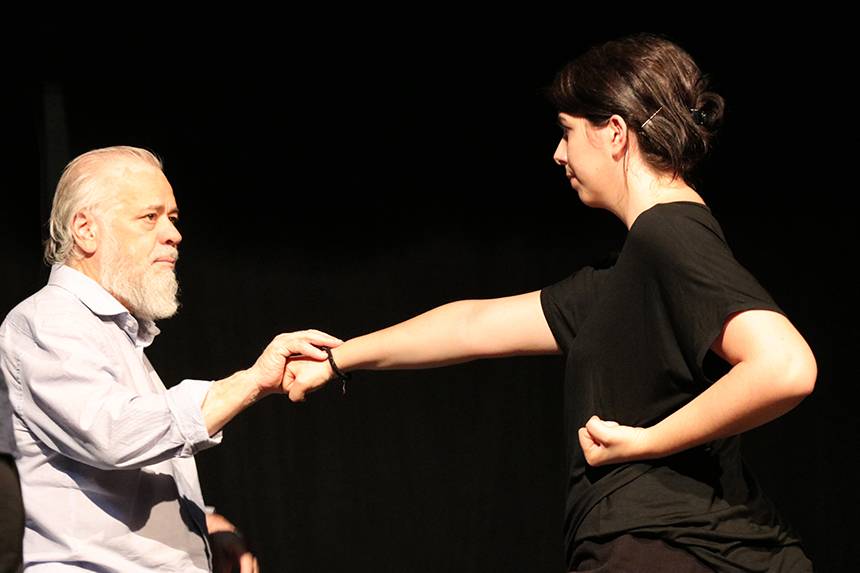
Photo Credit Marina Colucci.
Ivanka Apostolova Baskar:In April 2023 as part of the ETERIA international project (supported by EACEA/EU and Creative Europe Fund), you had a mentoring workshop Unknown Memories of Conflict in Skopje, in collaboration with local theater practitioners from Macedonia. What were your expectations, and what did you actually face?
Fabio Tolledi: The workshop was very interesting and stimulating. Macedonia is still today a place deeply marked by conflict. And at the same time the sensitivity of the actresses and actors testify to a profound interest in contemporary artistic expression. This is an unequivocal sign of the great vitality of these places.
Ivanka Apostolova Baskar: You are one of the founders and artistic director of Teatro Astragali from Lecce, Puglia, Italy? What type of theater with repertoire, program is it about –toward narrative, thematic, stylistic, aesthetic, engaging… characteristics? Among other things, you have numerous international projects and collaborations?
Fabio Tolledi: Astragali Teatro was founded in 1982. I became Artistic Director in 1992. Since then I developed an intense, continuous work based on the performers physical training, on the body exploration within an experience of the group, of the team. The repertoire is related to poetry-theatre, with a strong accent on the poetical and visual dimension, always in an engaged perspective and practice. We have opened our theatre to the international collaborations which have been so numerous during the years and still are at the core of our artistic practice, which is always aimed to learn from the encounters with other cultural backgrounds. Crucial experiences made in so many countries all over the world, going through diversities, similarities, going through languages, sounds, songs, landscapes, which build up an incredible beauty.
Ivanka Apostolova Baskar: Fabio, you are part of the international board of the oldest network for theatre, opera, dance, performance International Theatre Institute established by UNESCO in 1948.Please share, what are the challenges and difficulties faced by this network, in relation to the many competitive professional networks established in Europe and the world, in the past 30-20 years?
Fabio Tolledi: The ITI has its own very precise identity, based on the UNESCO Charter: theater as a tool for overcoming conflict, as a tool for mutual understanding, for the enhancement of cultural heritage (mainly immaterial) and of cultural diversity. All these aspects are characteristic of ITI and make of it a unique and original network.
Ivanka Apostolova Baskar: What is the role of European Regional Council of ITI (you are World Vice-President for Europe there) and the role of the Italian ITI Center (who are the members and what kind of collaboration you provide and exchange)?
Fabio Tolledi:The ERC coordinates the 33 ITI European centers present in the UNESCO European zone. In recent years, my commitment has mainly been to encourage great interaction between the ITI Centres. The Italian Center of ITI has played an important role for the collaborations between the different Centers in Europe and beyond. The following theatres are part of ITI Italia: Teatro Vascello in Rome, Accademia Mutamenti in Tuscany, Teatro Arsenale in Milan, AenigmaTeatro in Pesaro-Urbino, Manachuma Teatro in Calabria, LaMaMa Umbria in Spoleto, as well as Astragali Teatro which hosts the national headquarters of ITI Italia. ITI Italia has institutional partnerships with various national and international research institutes, theatres, universities.
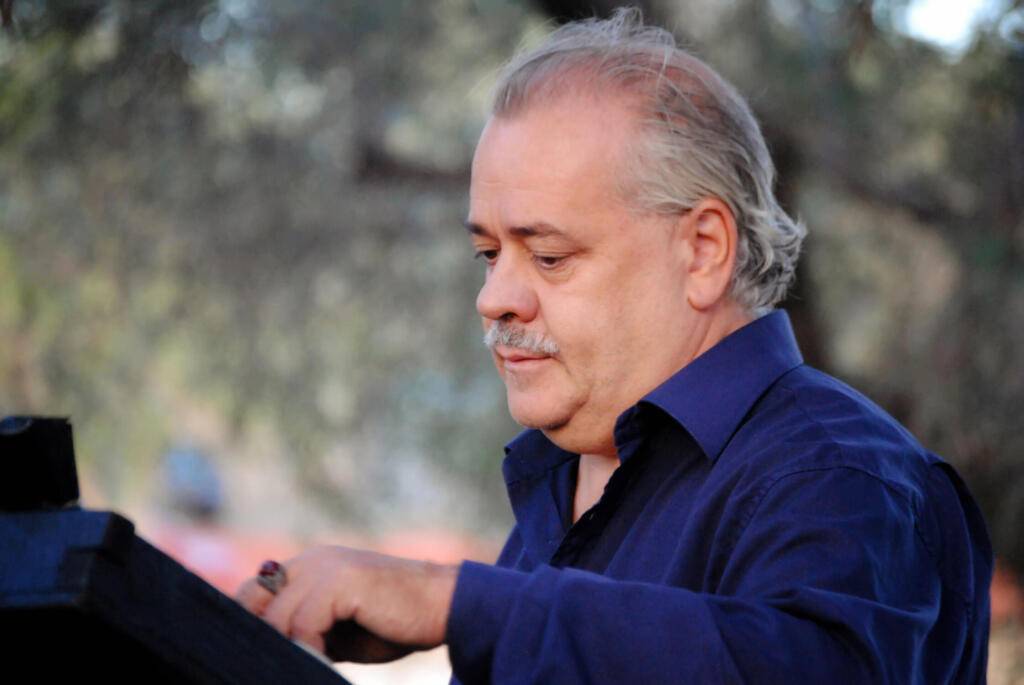
Photo Credit Marina Colucci.
Ivanka Apostolova Baskar: Of what importance for professional development for a theater practitioner do theater residencies in Europe and around the world represent? What do international residencies enable?
Fabio Tolledi: The theatre residencies are very important as they give to artists a great opportunity to work in a creative environment during a time totally dedicated to the artistic research and creation. They receive support, technical assistance and can have a confrontation with the hosting artists. On international level the theatre residencies can contribute to promote the artistic mobility, especially for artists coming from areas of conflict and with less opportunities to be visible and to have a support for their work. This is a practice that should be improved and that should find more support of European countries in releasing visas.
Ivanka Apostolova Baskar: What is the role and effect of the dramatic artist today in the face of galloping AI technology, incessant military conflicts and brutal war businesses, the horror and damage of climate change accelerated by the irresponsibility of neoliberal capitalism; we witness so many contradictions and bizarre to hypocritical (but strong) controversies; then what is the meaning of the theater and the stage, today?
Fabio Tolledi: Theater has, even more in this context, an extraordinary strength and impact. Theater is made up of the concrete encounter of the person who watches and of the one who makes. Theater has been and remains a living experience. There is virtual reality, as there is also an experience related to technologies, but nothing can ever replace the emotion of a body embracing another body, the emotion of a kiss, or of an experience that a body has, watching and feeling a performer on a scene.
Ivanka Apostolova Baskar: Do you see humanism surviving in the future, in life and creative and existential works?
Fabio Tolledi: Humanity, as long as it exists, can only resist by exercising its own humanism.
Thank you very much Fabio Tolledi!
This post was written by the author in their personal capacity.The opinions expressed in this article are the author’s own and do not reflect the view of The Theatre Times, their staff or collaborators.
This post was written by Ivanka Apostolova Baskar.
The views expressed here belong to the author and do not necessarily reflect our views and opinions.

